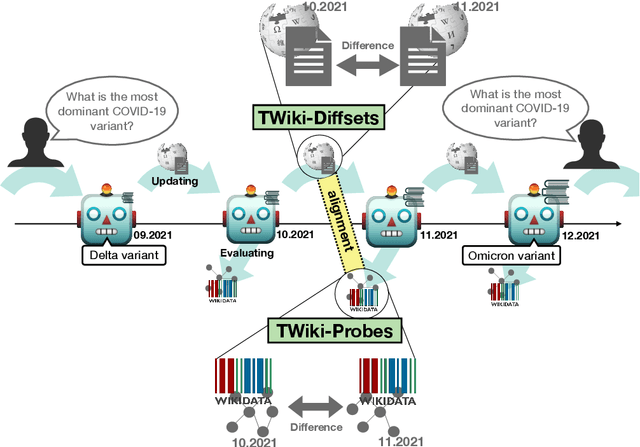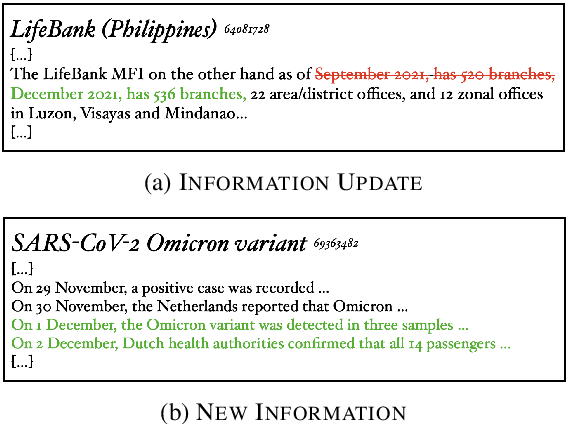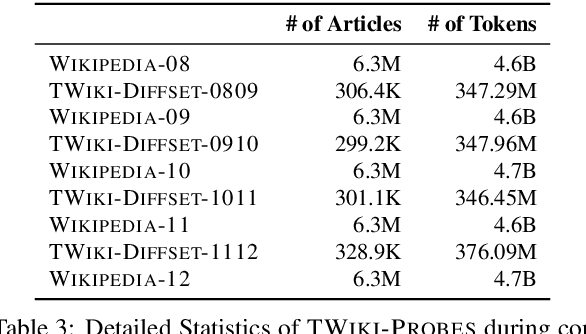Gyeonghun Kim
External Knowledge Selection with Weighted Negative Sampling in Knowledge-grounded Task-oriented Dialogue Systems
Sep 06, 2022



Abstract:Constructing a robust dialogue system on spoken conversations bring more challenge than written conversation. In this respect, DSTC10-Track2-Task2 is proposed, which aims to build a task-oriented dialogue (TOD) system incorporating unstructured external knowledge on a spoken conversation, extending DSTC9-Track1. This paper introduces our system containing four advanced methods: data construction, weighted negative sampling, post-training, and style transfer. We first automatically construct a large training data because DSTC10-Track2 does not release the official training set. For the knowledge selection task, we propose weighted negative sampling to train the model more fine-grained manner. We also employ post-training and style transfer for the response generation task to generate an appropriate response with a similar style to the target response. In the experiment, we investigate the effect of weighted negative sampling, post-training, and style transfer. Our model ranked 7 out of 16 teams in the objective evaluation and 6 in human evaluation.
TemporalWiki: A Lifelong Benchmark for Training and Evaluating Ever-Evolving Language Models
Apr 29, 2022



Abstract:Language Models (LMs) become outdated as the world changes; they often fail to perform tasks requiring recent factual information which was absent or different during training, a phenomenon called temporal misalignment. This is especially a challenging problem because the research community still lacks a coherent dataset for assessing the adaptability of LMs to frequently-updated knowledge corpus such as Wikipedia. To this end, we introduce TemporalWiki, a lifelong benchmark for ever-evolving LMs that utilizes the difference between consecutive snapshots of English Wikipedia and English Wikidata for training and evaluation, respectively. The benchmark hence allows researchers to periodically track an LM's ability to retain previous knowledge and acquire updated/new knowledge at each point in time. We also find that training an LM on the diff data through continual learning methods achieves similar or better perplexity than on the entire snapshot in our benchmark with 12 times less computational cost, which verifies that factual knowledge in LMs can be safely updated with minimal training data via continual learning. The dataset and the code are available at https://github.com/joeljang/temporalwiki .
Towards Continual Knowledge Learning of Language Models
Oct 26, 2021



Abstract:Large Language Models (LMs) are known to encode world knowledge in their parameters as they pretrain on a vast amount of web corpus, which is often utilized for performing knowledge-dependent downstream tasks such as question answering, fact-checking, and open dialogue. In real-world scenarios, the world knowledge stored in the LMs can quickly become outdated as the world changes, but it is non-trivial to avoid catastrophic forgetting and reliably acquire new knowledge while preserving invariant knowledge. To push the community towards better maintenance of ever-changing LMs, we formulate a new continual learning (CL) problem called Continual Knowledge Learning (CKL). We construct a new benchmark and metric to quantify the retention of time-invariant world knowledge, the update of outdated knowledge, and the acquisition of new knowledge. We adopt applicable recent methods from literature to create several strong baselines. Through extensive experiments, we find that CKL exhibits unique challenges that are not addressed in previous CL setups, where parameter expansion is necessary to reliably retain and learn knowledge simultaneously. By highlighting the critical causes of knowledge forgetting, we show that CKL is a challenging and important problem that helps us better understand and train ever-changing LMs. The benchmark datasets, evaluation script, and baseline code to reproduce our results are available at https://github.com/joeljang/continual-knowledge-learning.
 Add to Chrome
Add to Chrome Add to Firefox
Add to Firefox Add to Edge
Add to Edge